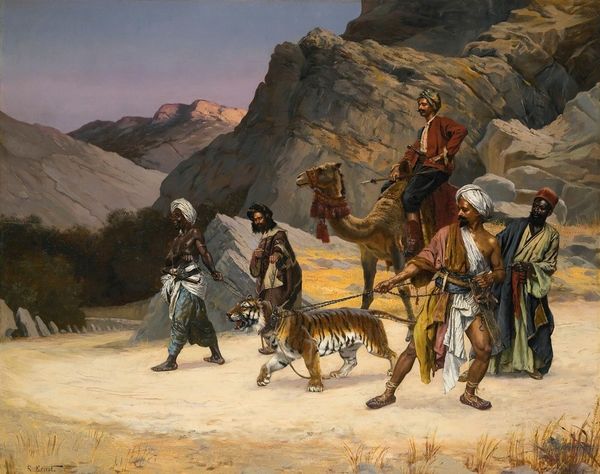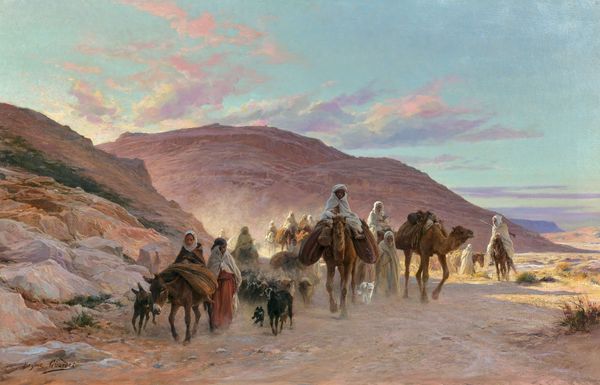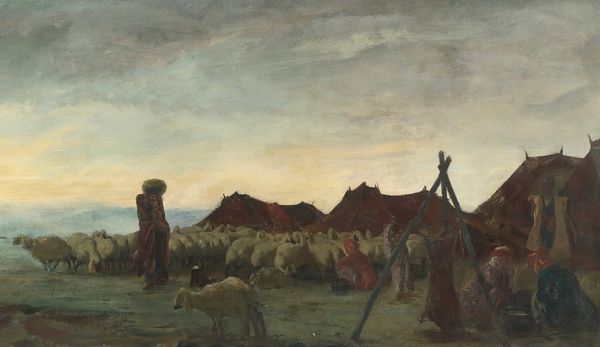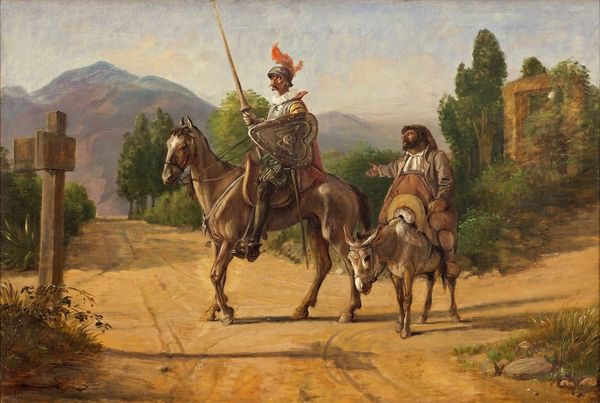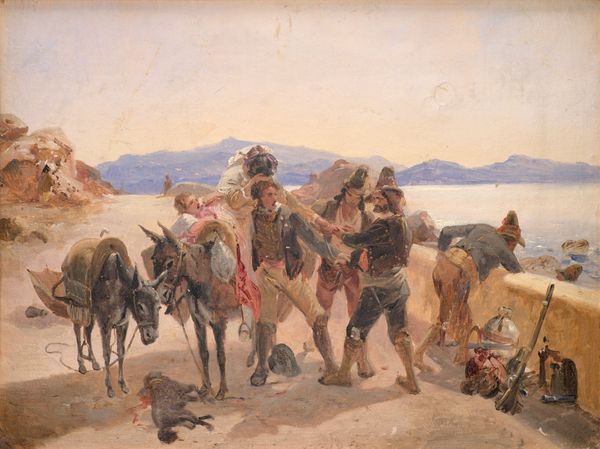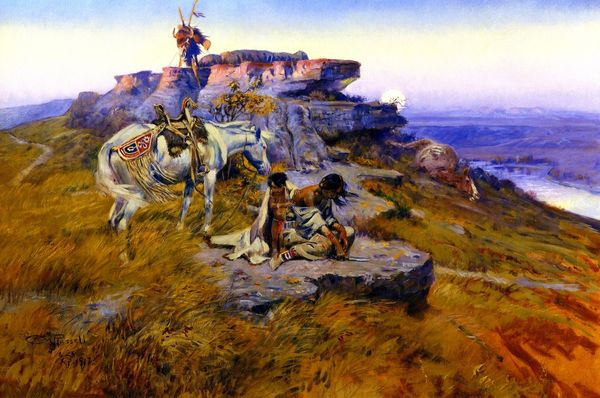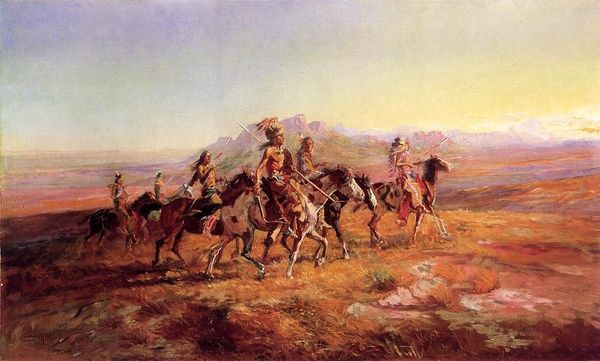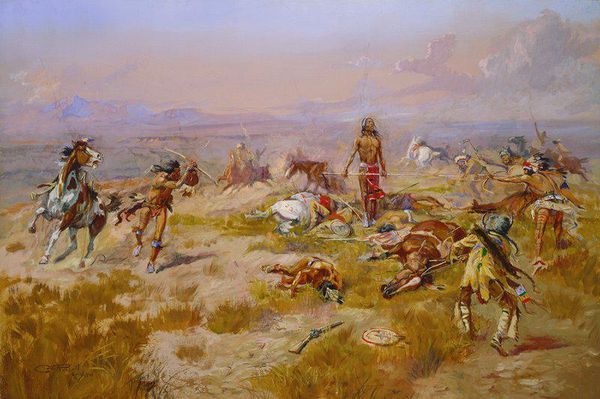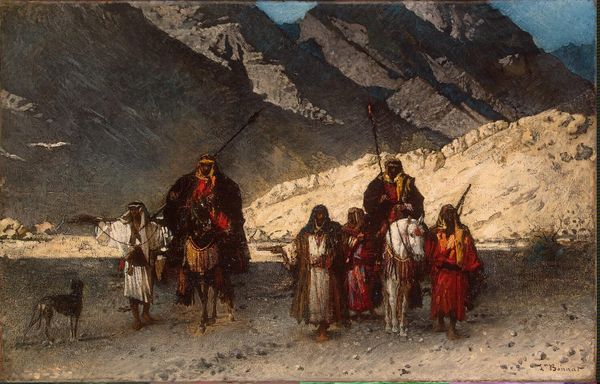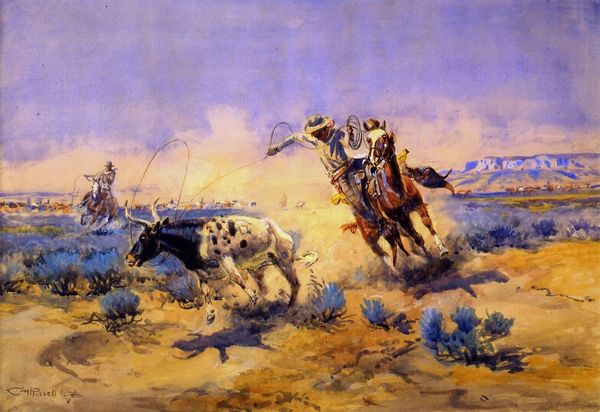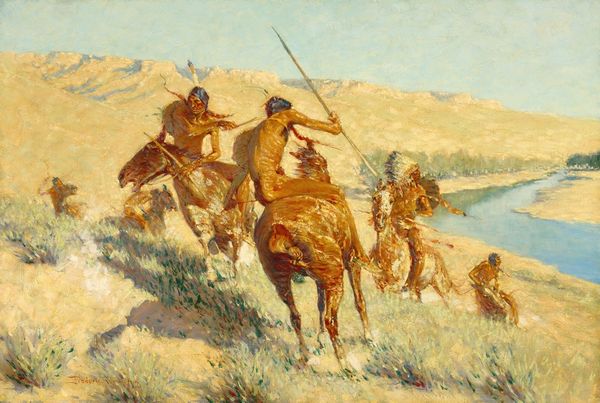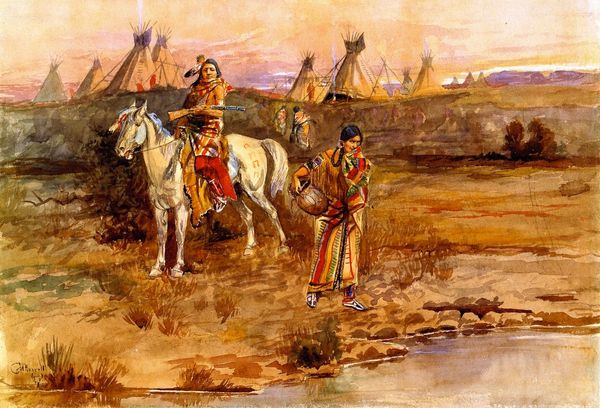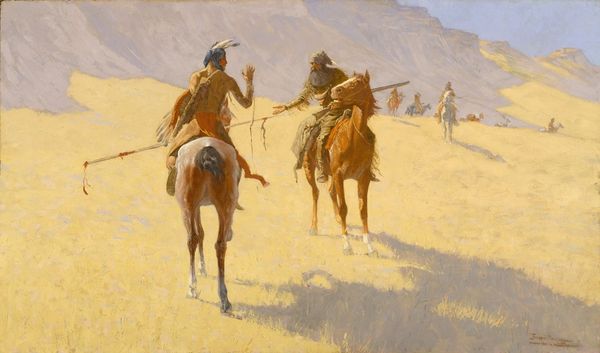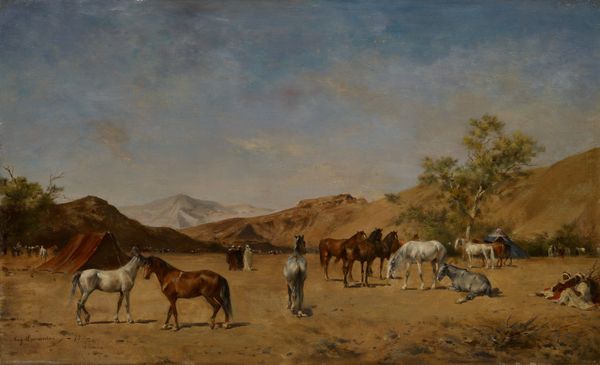
painting, oil-paint
#
figurative
#
painting
#
oil-paint
#
landscape
#
figuration
#
oil painting
#
orientalism
#
genre-painting
#
realism
Copyright: Public Domain: Artvee
Rudolf Ernst painted "The Tiger Hunt" with oils on canvas in the late 19th or early 20th century. This was a period when European artists often looked to the Middle East for inspiration, creating what we now call Orientalist paintings. Ernst never actually visited the Middle East himself. Instead, he constructed his scenes from photographs and second-hand accounts, resulting in a romanticized and exoticized vision. Oil paint, with its ability to capture fine detail and rich color, was the perfect medium for these fantasies. Ernst's brushwork creates textures suggesting the roughness of the desert landscape and the finery of the costumes, adding to the painting's allure. The painting idealizes a hierarchical vision of labor and class. It makes no mention of the violence towards the tiger. Instead, the opulent scene speaks to a wealthy European's desire for exotic escapism. By focusing on materials, making, and social context, we can better understand the complicated meanings behind this work.
Comments
No comments
Be the first to comment and join the conversation on the ultimate creative platform.
